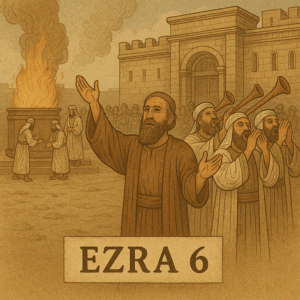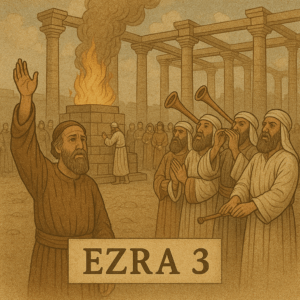Deuteronomy 20 is a chapter where Moses provides detailed instructions on the laws of warfare. These guidelines emphasize the importance of faith, ethical conduct, and adherence to God’s commandments during times of battle.
The context of Deuteronomy 20.
In Deuteronomy 20, Moses addresses the Israelites, giving them specific laws and guidelines for warfare as they prepare to enter the Promised Land. These instructions cover various aspects of military engagement, from the morale of soldiers to the treatment of enemies, ensuring that the Israelites conduct themselves righteously in battle.
Key themes in Deuteronomy 20.
- Faith and courage: Moses encourages the Israelites to have faith and not be afraid when facing their enemies. He reminds them that God will be with them and fight for them, providing victory.
- Exemptions from battle: The chapter outlines several exemptions from military service, including those who have recently built a house, planted a vineyard, become engaged, or are fearful. This ensures that those who are not in the right state of mind or have significant personal obligations are not forced into battle.
- Ethical conduct in warfare: Moses provides guidelines for ethical conduct during warfare. This includes offering peace to cities before attacking them, sparing the lives of women, children, and livestock, and prohibiting the destruction of fruit-bearing trees.
- Treatment of enemy cities: The chapter differentiates between the treatment of cities that are far away and those that are within the Promised Land. Cities far away are to be offered peace terms first, while those within the land are to be completely destroyed to prevent the influence of idolatry.
Lessons from Deuteronomy 20.
- Trusting in God’s protection: The chapter emphasizes the importance of trusting in God’s protection and guidance during times of conflict. Faith in God’s presence provides courage and reassurance.
- Consideration for personal circumstances: The exemptions from battle show a compassionate consideration for personal circumstances, highlighting the importance of mental and emotional readiness for warfare.
- Ethical warfare: The guidelines for ethical conduct in warfare remind us of the importance of maintaining righteousness and compassion, even during conflicts. Ethical behavior is crucial in upholding moral integrity.
- Preventing idolatry: The strict treatment of enemy cities within the Promised Land underscores the importance of preventing idolatry and maintaining spiritual purity among the Israelites.
Conclusion.
Deuteronomy 20 provides essential guidelines for conducting warfare with faith, courage, and ethical considerations. As we reflect on this chapter, we are reminded of the importance of trusting in God’s protection, considering personal circumstances, maintaining ethical conduct, and preventing the influence of idolatry. By following these principles, we can ensure that our actions, even in times of conflict, align with God’s commandments.




